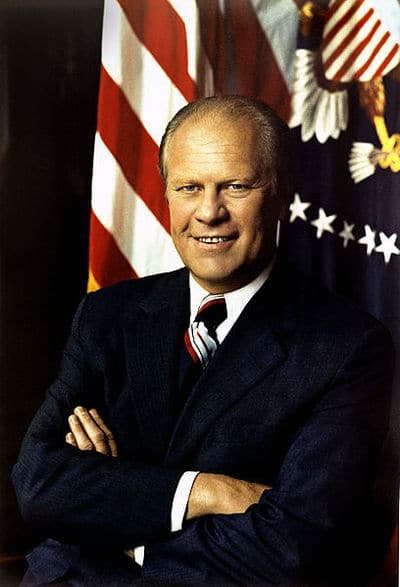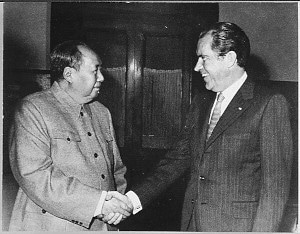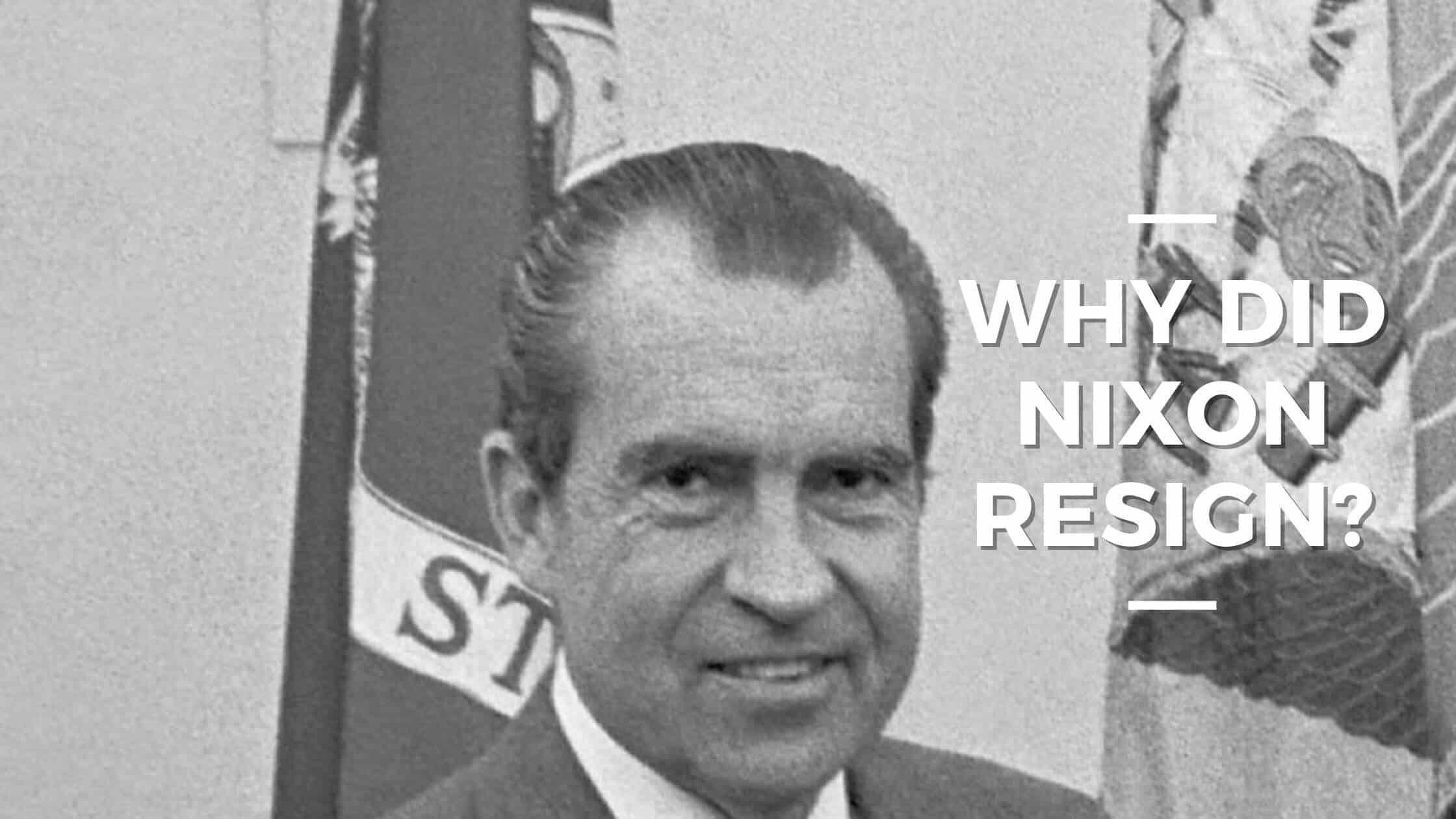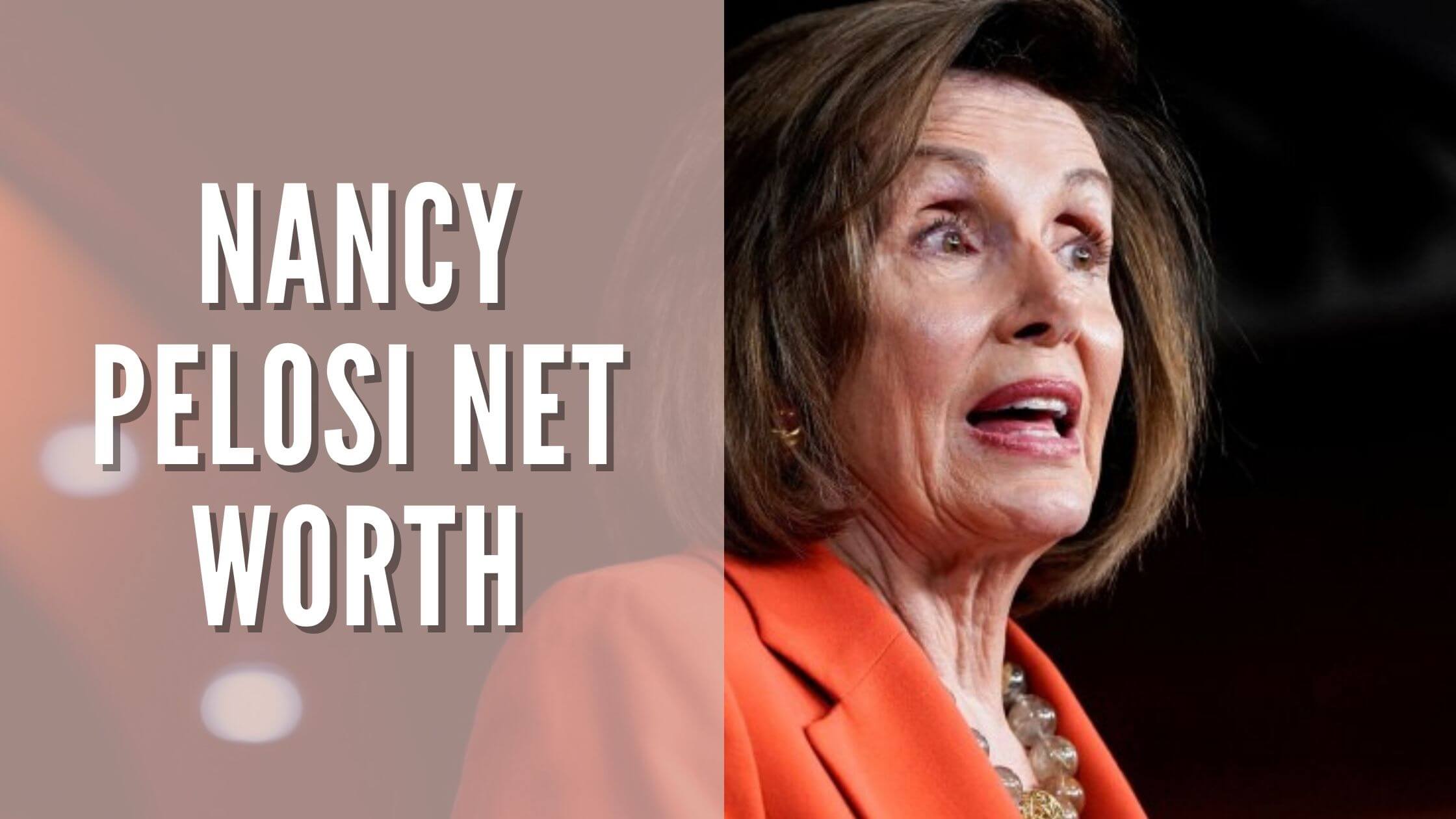Table of Contents
ToggleThe presidency of Richard Nixon is remembered mostly for the Watergate scandal of 1972-74. There was a point where it seemed as though whatever the president had or hadn’t done concerning the break-in and suspected cover-up, he would get past it. But, on August 9th, 1974, President Nixon signed a resignation letter, left office, and was replaced by Gerald Ford. So, what happened? Why did Nixon resign, and how does it relate to Watergate?
Why Did Nixon Resign?
Nixon resigned because there was no way to survive the Watergate scandal. He had ridden the wave of controversy following the break-in and allegations of a cover-up for two years. However, damning new evidence emerged that meant that impeachment for obstruction of justice was a certainty. Reluctantly, Nixon left office before the end of his term to avoid facing trial as president. Although he resigned, he always insisted that he was innocent.
The Watergate Scandal
The controversy surrounding Richard Nixon as president lies with the Watergate scandal. In short, his Watergate predicament revolved around a break-in at the headquarters of the Democratic National Committee at the Watergate Office Building in Washington, D.C. It was later determined that the five men arrested for the burglary had cash connected to the Committee for the Re-Election of the President.

Therefore, it appeared that Nixon, or close associates of his, had paid these men to break into the offices during the campaign. Over time, it became apparent that the president had been involved, and reporters like Bob Woodward and Carl Bernstein at the Washington Post worked to break the case and bring him to justice.
Over two years, President Nixon assured the world that he wasn’t involved, giving the infamous “I am not a crook” speech at Disneyland in November 1973. However, audio recordings of Nixon discussing a cover-up proved that this wasn’t the case.
The Smoking Gun Tape
The most damaging evidence against Nixon during the scandal was an audio recording of the president discussing the break-in and what he and his allies needed to do to ensure a cover-up and get the FBI off the scent. The tape recording dates from June 23rd, 1972, shortly after the event.
The release of the tape on August 5th, 1974, was a game-changer for the case against Nixon and the Watergate scandal. It was now clear that Nixon was implicit and that there may be evidence that he was trying to obstruct the course of justice.
Calls For Nixon’s Impeachment
This was the final nail in the coffin for Nixon, and there was no way that he could survive what was to come. Having previously denied any involvement, it would now be clear to Congress and the wider public that he was lying. The Republicans that had previously voted against impeachment changed their stance. Just four days later, Nixon would be out of office.
Threat To Impeach Nixon
Impeachment was a certainty if Nixon was to remain in power. On August 7th, the Republican leaders of the Senate and House of Representatives met with him to discuss the situation and explain their lack of support for him. He was sure to be convicted of obstructing justice.
The Resignation of Richard M. Nixon
The official date of the resignation was August 9th, 1974, although there was a public address the day before. On the evening of the 8th, Nixon gave a televised address to the nation where he announced his intention to resign from the presidency. The language of the speech is interesting as there is no obvious apology for any actions or admittance of guilt.

His speech notes that he had done his best to lead the nation and complete his term in the public’s interests but that he no longer had the support base necessary to see the term through to the end. He also relays how he wanted to stay but was urged not to by family and concedes it is for the nation’s good.
One of the most important lines reads, “To continue to fight through the months ahead for my personal vindication would almost totally absorb the time and attention of both the President and the Congress.”
Did He Jump, or Was He Pushed?
The next day, Nixon left the Oval Office with his family and boarded a helicopter on the lawn. There is a famous photograph where he faces the press with arms outstretched, V-signs with both hands, and a smile on his face. His speech and body language show defiance and reluctance, which enforces the idea that he was pressured out of the role. There are also claims that a deal was made to help secure his future if he left.
President Ford and the Pardon
This could have been the end to all the scandal and Nixon’s position in the spotlight. As his time in office came to an end, Vice President Ford immediately assumed the role, as determined by the 25th Amendment. However, President Ford soon used his power to pardon the former United States president, stating that Nixon was pardoned for any crimes “he has committed or may have committed.” This sweeping statement meant that Nixon would not have to go through a trial.

Get Smarter on US News, History, and the Constitution
Join the thousands of fellow patriots who rely on our 5-minute newsletter to stay informed on the key events and trends that shaped our nation's past and continue to shape its present.
Ford argued he did so to save the nation and former leader from a trial, which he feared would be unfair, potentially inconclusive, and damaging to a man that had suffered enough. This reasoning is challenged by those that would have preferred to see Nixon face the justice system. But, the situation was effectively over.
Nixon will be best remembered for Watergate, the resignation that followed, and the infamous “I am not a crook” line. Just because Ford pardoned him doesn’t mean that the American people forgave him. Today, he is a caricature in popular culture and the tyrannical head-in-a-jar space president in a popular animated series. The scandal has forever tainted the legacy of Richard M. Nixon.











